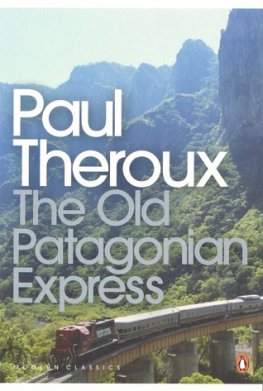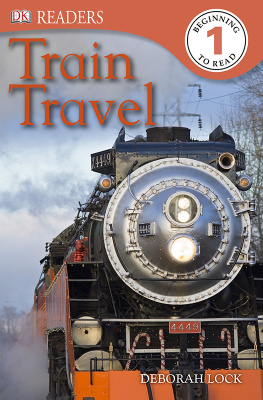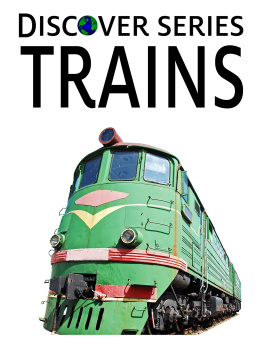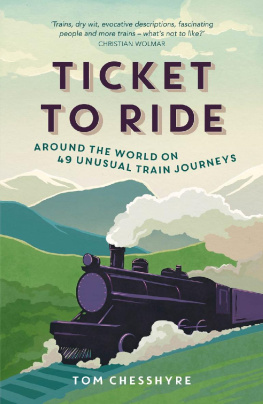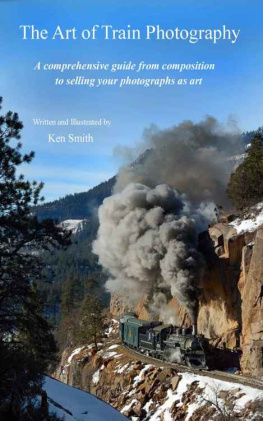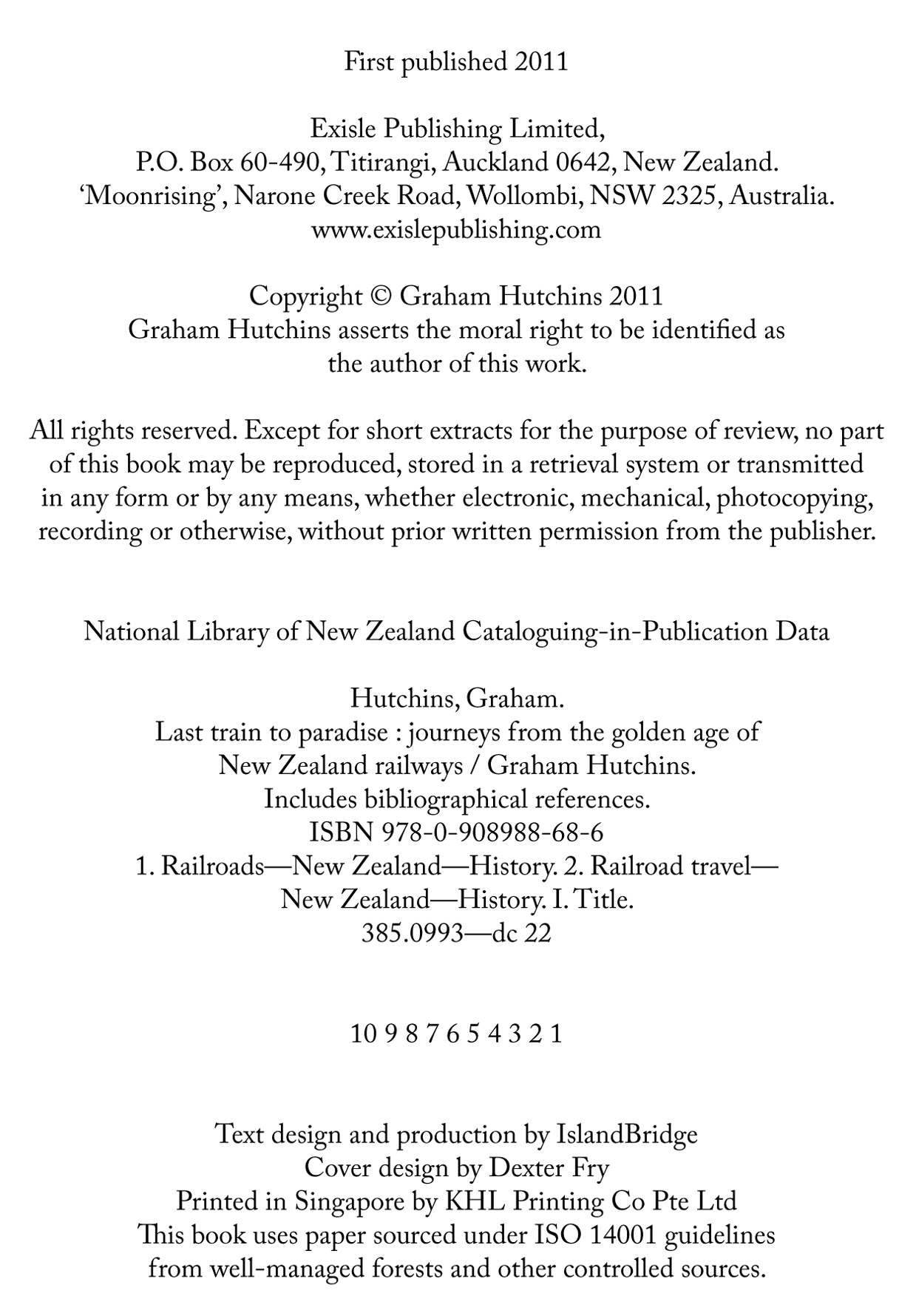Introduction
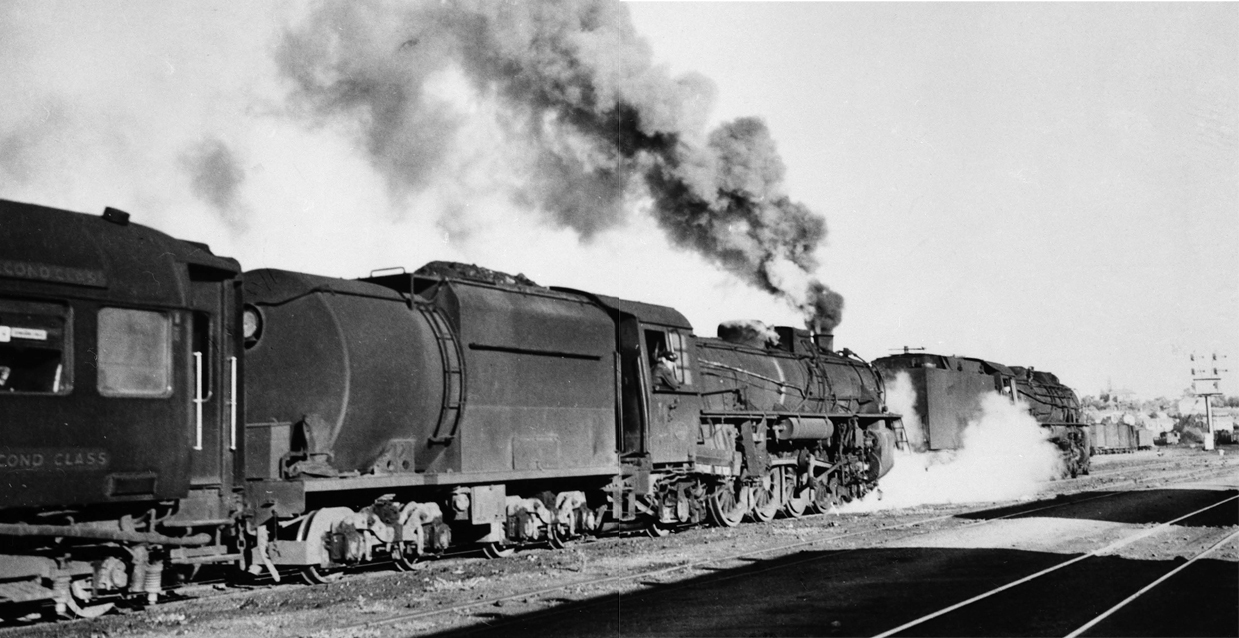
Dont spare the horses. Two engines K 911 and J 1227 haul the Auckland to Wellington Express in 1949. J.A.T. Terry Photo
Last Train to Paradise is a celebratory account of a time when train travel was more than just the accepted means of travelling around New Zealand. It was also an era when rail journeys provided excitement, companionship and a certain romance.
In those days almost everyoneroyal visitors, politicians, Governors General, businessmen, farmers, public servants, entertainers, writers, sports teams, soldiers off to war, overseas tourists, local holidaymakers, commuters, casual travellers, even prison escapers on the run and other freeloaderstravelled by train. At a time when cars were thin on the ground and roads often little more than gravelled goat tracks, the railways were both pivotal and prestigious.
A high sense of communality prevailed during the golden age of train travel, unlike the fragmented and individualistic era of the motorcar in more recent times. In many ways Last Train to Paradise covers a slice of New Zealand history when Kiwis were on their best behaviour. Mostly.
With railway stations often the hub of towns served by trains and city rail citadels Mecca for thousands of travellers, railway journeys were more than just a means of getting from A to B. Name trains, the likes of the Rotorua Limited, Opua Express and South Island Express, held pride of place, with the journey being as intriguing as the destination.
In general terms the first 50 or so years of the twentieth century have often been considered the golden age, although, in terms of the significance of rail travel, the period from 1880 to 1960 was probably more representative. As well as becoming established as the principal means of transporting freight, the railways held sway then as the most popularand often the onlyway New Zealanders moved around. Suburban trains flourished. Special excursion jaunts were common. Trains took you to work and home again, or to special events as leisure time increased. Kids went to school by train. Mothers and grandmothers went to town. Royal trains, troop trains, test-match specials, and other such excursions, each had an aura of their own.
More than anything though, name trains of the era held a special fascination, as train travel emerged from earlier decades in the developing colony, when trains were seen as a novelty. Long and middle-distance expresses and limiteds were glorified by some, although it took their diminution in later years for many New Zealanders to appreciate what they had lost.
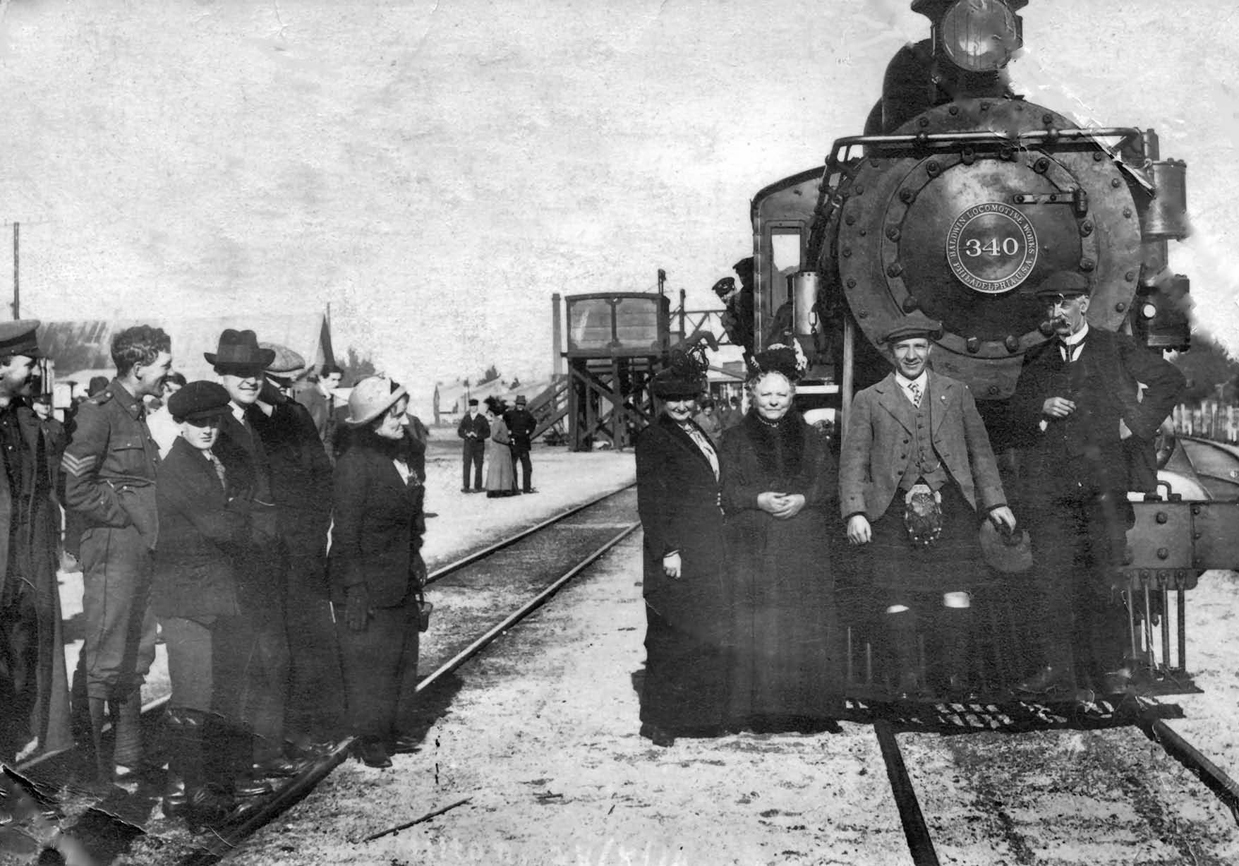
Harry Lauder, the Scottish singer resplendent in kilt and sporran, stands on the cowcatcher of a Q engine amidst dignitaries and admirers. His rakish gait confirms the affectionate connection between train travel and visiting entertainers during the halcyon years of New Zealand passenger trains. J.A.T. Terry Collection
Last Train to Paradise celebrates the old passenger trains that roared and swayed through a different New Zealand. If a time machine were at our disposal it would be tempting to go back to the days of steam-drawn services and less complicated ways and take a seat on a train heading out. Out of strangulating big cities, tedious small towns and away from lonely backwaters and rural haunts, when there was always the promise of better things down the line.
Trains held the hope of escape. As the ubiquitous AB engines propelled earlier trains and the altogether more overbearing Ks and KAs bullied their way to the front in later years, the spectre of the looming railcar years seemed too distant to contemplate. The Js and JAs, more sleek and elegant, also held pride of place at the head of the train.
Trains not only linked communities, they were communities in themselves. The stations were their temples, where every man and his dog, every woman in her finery, every farmer in gumboots, every child in school kit and every trooper in sandpaper-rough uniform, gathered either to welcome or farewell someone, or take their place on board.
New Zealand was a different place. While there were wars and a depression to endure, and an egalitarianism that often curdled into archconservatism, back then graffiti was some brave soldier emblazoning his troop train carriage with Were off to beat Mussolini in chalk, or a happy drunk daubing Merry Xmas on the Newmarket signal box. Social mayhem was a gaggle of rugby supporters making a lot of noise on the platform and even more once on board. Trains ran through communities built on a sound foundation. Men worked, women were home-makers and mothers, and kids knew their place, which by todays standards, was in the sun. Self-esteem would have sounded as if it was vaguely related to the means of propulsion at the head of the trains.
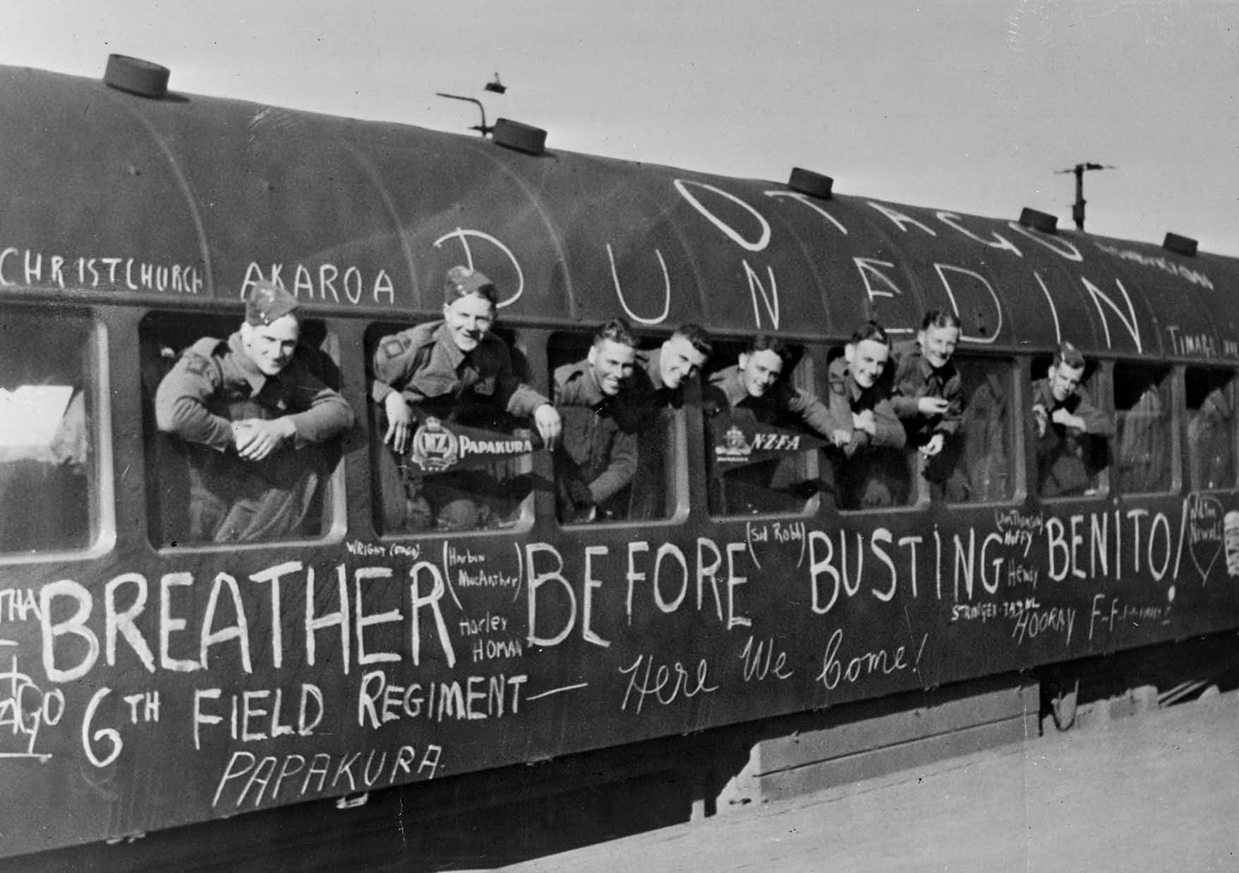
Off to waragain. Kiwi soldiers put on a brave face as their troop train prepares to depart. Some never came home. ATL-1/2-061218-F
My generation grew up to the sound of trains, and once wed realised that the surviving services in the 1950s were not the melting tip of the iceberg, but its rapidly diminishing remains, we began looking back. Back to days when passenger trains were everywhere and everyone took themoften for grantedas a means of conveyance and communality.
Last Train to Paradise is unashamedly nostalgic. Many of us would like to go back and travel at a different pace and to a different place, where we would once again know where we stood in the Kiwi scheme of things, and sing the praises of a more certain social setting.
The old trains were like revered friends. We used to count the number of carriages on the Auckland Wellington Express and we memorised the numbers of the AB, KA and JA engines. Such rituals represented a profound respect for something we figured was here to stay. It never occurred to us that one day such omnipresent people-movers would fade from the landscape. And of course we waved at the trains. Sometimes passengers waved back, although as the 50s merged into the 60s, fewer did.
Then we stopped waving. Trains became pass, unfashionable. The motorcar emerged as the chariot of gods and ordinary jokers, and all too frequently, they were chariots of fire and destruction. The outer facades of the trains began to fade. New car owners saw them as a grubby blot on the landscape, an encumbrance to bear at level crossings. Gone were the days of bright, gleaming engines and sleek, polished carriages, when the sight of a train produced excitement and yearning, with more than a hint of a world of intrigue and fascination.
Last Train to Paradise also visits the people who travelled on the old trains. Joe Blow and his wife and kids were familiar enough, but the trains also carried celebrities. Royalty had their own designated trains, personalities like Paderewski, the world-famous Polish pianist, had special carriages given over to their ease of passage. Then there were those celebrities who simply bought a ticket and took their chances, just like the rest of us. Mark Twain, the famous American author, took a New Zealand train back in the 1890s:



